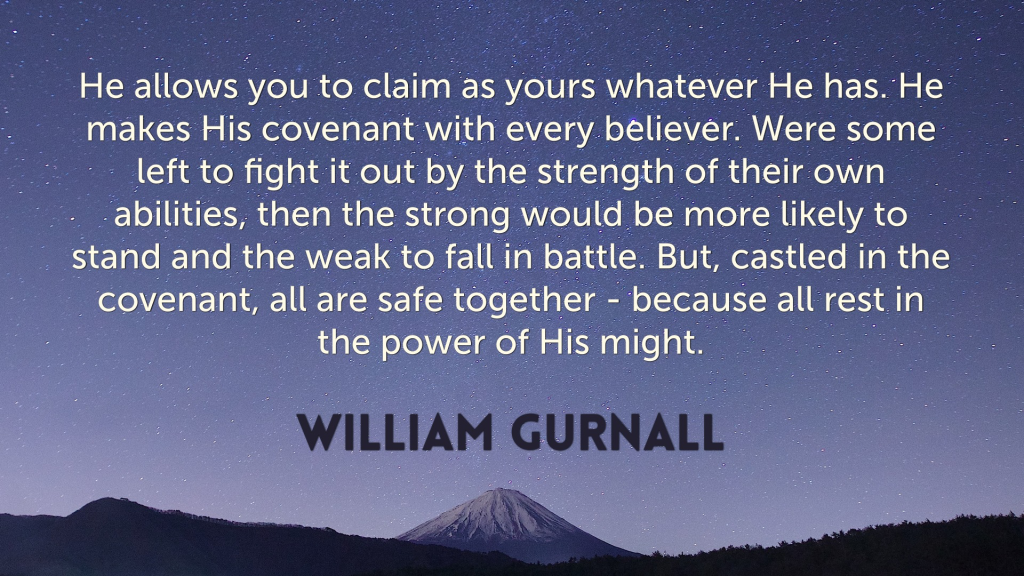
In her book Cut, author Patrica McCormick tells the fictional yet hauntingly real story of Callie, a girl who has been put in a residential treatment facility because of her struggle with cutting herself. Throughout the book, Callie proves to be a master at appearing invulnerable. When pressed with questions by her counselor, she remains silent. During group therapy, she keeps her body language as still as possible so she isn’t called on to share. If things get really bad, she runs away. Deep down she knows she has a problem, but addressing it would require exposing her true self and that is a risk she is unwilling to take. It isn’t until the last page that Callie is finally able to vocally admit her problem as well as her desire to get better.
Many of us know this paradox well: something deep inside of us yearns for authentic and real relationships, but the risk of exposing ourselves is too much for us to handle. We become experts at defense mechanisms and dodging the tough questions, all the while suppressing our hearts desire to be truly and intimately known by others. Why is it that we so often fail to open ourselves up to another, to entrust our truest selves to someone else? I think the answer comes down to one simple four-letter word: fear.
The Fear of Being Known
We know at a propositional level that community and deeper relationships are for our good. We even recognize on an emotional level that our souls desire to be known and loved by others. And yet, such relationships require a level of commitment and accountability which scares us. The fear of being known for the first time feels like an exposed nerve just waiting to be damaged. Such a fear can seize, paralyze and ultimately prevent us from giving ourselves to others as God intended.
When I first became a Christian, one of the things that surprised me most was just how open and honest older men in the faith were. I had never needed to open myself up to others, and I had deceived myself in to thinking I was impenetrable. However, there was something captivating and attractive about men who could expose their genuine selves to other men and actually be loved more for it. As soon as I recognized what they had, I knew it was something I desperately needed. I had to make the conscious choice to stop living out of the fear which had previously taken control of me.
The Fear of Being Known…Again
You may have read the above section with a sick kind of knot forming in your stomach. The reason for this is because you know all to well the stakes involved in exposing yourself to others in vulnerable community. At some point in the past, you’ve entrusted your heart to another – and now you feel as if you’ve paid the price. The central nerves to your soul were revealed and the result was that they were damaged by some kind of relational sandpaper, stripping you of any desire to ever expose yourself again.
I was about kindergarten age when I had my first memorable experience with really bad food poisoning. The culprit? A grilled cheese sandwich from my daycare. This delicious morsel which had been created for my good and my joy betrayed me. I was dumbfounded as to how something that could be so good could hurt so bad! Even at that age, I knew I had simply had a bad experience with one particular sandwich and that not all grilled cheeses would give me food poisoning. Yet I couldn’t get over it for years – so long in fact that I was an adult before I ate that cheesy goodness again.
I think there are a lot of us who have had a “grilled cheese experience” with Christian community. We took the first step out of faith and obedience and gave our hearts over to others, and we were tragically wounded by someone close to us. We know all to well that those nearest to us have the potential to hurt us the most. In order to try and protect ourselves from ever being heartbroken again, we return to living out of fear; this fear when it has conceived gives birth to bitterness, and bitterness when it is fully grown brings forth a kind of deadly cynicism which can feel impossible to crack.
What hope is there for those of us who are plagued by fear? What are we to do about our paralyzing cynicism? How can we ever get to a place where we are willing to embrace vulnerability in community?
The Fear-Conquering Hero
Cut tells the story of a helpless child whose physical struggles point to a weightier spiritual struggle: the fear of being rejected if others find out who she really is. Our own stories all look different, but we play a similar role. Like Callie, we too fear what will happen if others find out just how much of a fraud we really are. The good news is that there’s a Hero who rescues us out of our own bleak stories and bring us in to His.
Christ knew exactly what awaited him in his incarnation. The stakes of revealing himself to the world were high; the stakes in remaining hidden were even higher. In these last days, God made himself fully known through his Son (Heb. 1:2). He became one of us and fully exposed the height and depth of his heart for us. But the fear of being fully known by God was just too much; our defense mechanisms kicked in – so we killed Him.
Our Savior knows what’s at stake in exposing and giving our hearts to others in community, but he did not allow fear to consume him. He took the first step and engaged us in an intimate and loving fellowship, no matter what the cost was to himself.
Jesus knows what it means to be wounded by those closest to him: Peter made promises he couldn’t keep (Matt. 26:34), his three closest friends couldn’t protect him in his hour of need (Matt 26:40), Judas betrayed him (Matt 26:49), and when it was all said and done his only company was that of two robbers who were crucified with him (Matt 27:44). When our closest friends in community wound us, we identify with Christ probably more than we realize.
Despite all of this, he now lives forever to give all of himself to those who trust him in faith. We know that he sees our truest selves – and loves us still. Others might reject us, but we know we are accepted by Him. If he has conquered fear, how then can we continue to live in it any longer? Let’s respond to Christ’s sacrifice by giving ourselves to one another in faith and love. What we will find is that as we grow in our relationships with others, we will grow in the understanding of our relationship with the Lover of our souls.
Doubt and fear are two responses to situations in life that are common to all of us. One could say that they’re woven into our spiritual DNA as fallen creatures this side of the curse. Maybe you fear and doubt that the Lord will provide for your family, so you overwork yourself to the point of exhaustion. Maybe you doubt the Lord’s goodness to you in the gift of your spouse, so you are constantly seeking to control your marriage. Perhaps struggles with infertility for years have become such a burden that you doubt if God even hears your cries at night. Or possibly you’re experiencing something that we’ve all experienced at some point in our Christian walk – doubt that we have even truly been saved by God.
Can you relate to experiences like these? If you can, then you know that fear and doubt has the capacity to absolutely paralyze us. Rather than living a life confidently in the graces of God, we respond with a life of both apathy and control. Our doubts and fears lead us toward bitterness and resentment, both toward God and other Christians. When life seems to be going so well for everyone else, what can we do when God feels distant and we doubt his promises to us?
Abraham knew what it was like to experience doubt and despair. Both he and his wife Sarah were quite old in age, and had yet to produce any offspring. The author of Hebrews describes Abraham as someone who was as “good as dead (Hebrews 11:12),” both because of his old age but also because infertility was equivalent with death in ancient near eastern culture and society.
But then in Genesis 15 the Lord came and spoke to Abraham, and everything changed – or so we would think. Here is Abraham before the face of the Lord of the universe, and he still doubts the promises of God; not once, not twice – but three times! The first example of this is when God promises Abraham a “great reward.” How does Abraham respond? He casts blame on the Lord that he continues childless and that one of his servants will become his heir (Gen. 15:2). Rather than believing the promise of God, he blames him for his current circumstances. I’m sure you can relate.
But this isn’t the end of Abraham’s struggles with fear and doubt. Once again the Lord makes a promise, this time promising Abraham land for his offspring, but he doubts once again. “How can I know that I will possess it?” he asks (15:8). Are you sensing a pattern here? This time, Abraham asks for proof and evidence to back up the Lord’s promises. And God does just that.
In one of the most remarkable and extraordinary demonstrations of God’s love in all of Scripture, despite Abraham’s doubt God enters into covenant with him (15:12-21). In other words, God makes an unbreakable, intimate, loving promise bound in blood that he will remain true to his word with Abraham.
After this whole ordeal, Abraham’s struggles with fear and doubt are over – right? Wrong. As a perfect example of how we all react to our fears and doubts, Abraham and Sarah try to control their situation rather than trusting the covenant promises of God. They take the promise of offspring into their own hands, and Abraham has a child by Sarah’s servant Haggar (Genesis 16). What began as a seed of doubt fully blossomed into a full-grown tree of disobedience.
At this point, how would you respond to someone like Abraham? If I made a promise to someone twice, with a huge demonstration of my love and loyalty to them, and they still blew me off – I’d be pretty frustrated! But frustration has no place in the covenant love of God. Rather than pouring out justifiable anger on Abraham the Lord renews his covenant with Abraham (Genesis 17), promising that he will be the God of Abraham and his children forever (17:8).
So what does this have to do with us? Well, consider this: Genesis 15-17 are foundational narratives for the rest of redemption history. Abraham is the great patriarch of not only the people of Israel, but of the gentiles also (Romans 4:11-12). He is the great example of faith and works that both Paul (Romans 4:3, Galatians 3:6) and James (James 2:21) refer to. How comforting it is for us to see then that this great example of faith was just as fallen as we are! Even though he was in the presence of God, experiencing the Lord’s covenant love, he was still stricken with doubt and fear that God’s word would be true for him.
What can we take away from all of this? Doubt and fear are things we will all struggle with in the Christian walk. Yet, when we are overcome with doubt and despair, we remember that God has made covenant with us in Christ (Hebrews 9:15). As the Psalmist constantly tells us, God’s covenant love – also known as his steadfast love – endures forever (Psalm 100, 107, 107, 118, etc.). The puritan William Gurnall described God’s covenant love in this way:
God’s covenant engages His almighty power. He puts His own hand and seal to His promise, and like the mountains surrounding Jerusalem it stands, never to be removed. As His name is, so is His nature – a God who keeps covenant forever. He does not parcel Himself out, a few crumbs to one, a crust to another – as one feeds the sparrows. He allows you to claim as yours whatever He has. He makes His covenant with every believer. Were some left to fight it out by the strength of their own abilities, then the strong would be more likely to stand and the weak to fall in battle. But, castled in the covenant, all are safe together – because all rest in the power of His might.
So when we are overcome with doubt and fear, we take heart in the fact that the strength of our faith never comes from within ourselves, but it comes from the object of our faith: the one who has given us his Son as the utmost expression of this covenant love. I think this is why Christ was able to say that faith the size of a mustard seed can move mountains (Matthew 17:20), because the power of our faith always comes from him. Even the smallest faith is saturated with the covenant love of the Almighty.
Friend, where are you doubting God’s covenant love in your life? How could trust in his promises allow you to relinquish control and give you confidence to live under His loving Lordship? Why not allow today to be the day where your fears and doubts fade, and are instead replaced by confidence in God’s steadfast love?
For the Lord is good;
his steadfast love endures forever,
and his faithfulness to all generations. – Psalm 100:5


